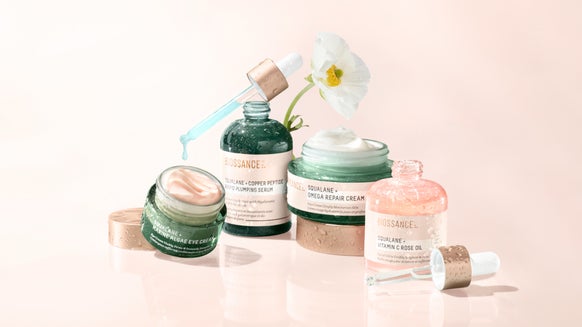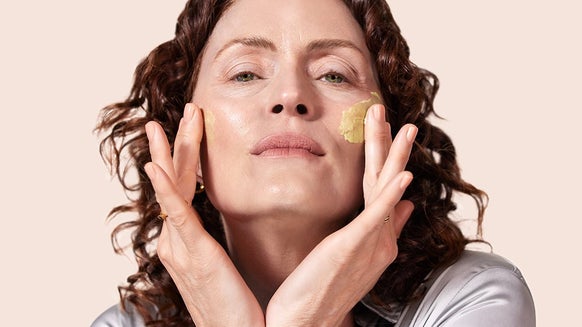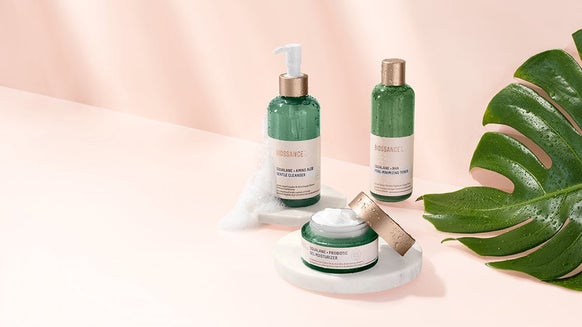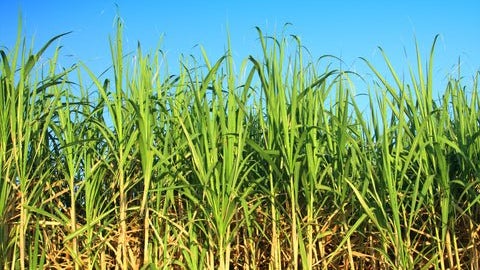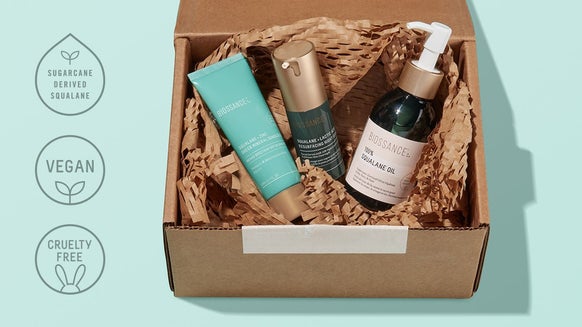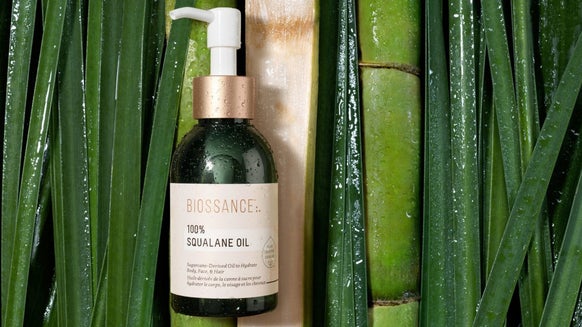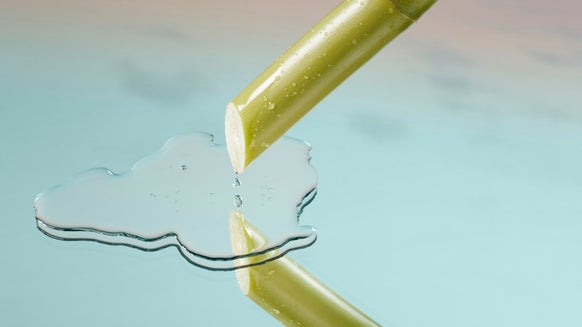Like so many things these days, skincare philosophies can be polarizing. It sometimes seems like the choice between all-natural and science-backed skincare products is an either-or proposition.But it’s not.After all, nature is scientific. Photosynthesis, for example, is a chemical reaction that not only helps plants grow, but also enables them to sequester millions of tons of carbon in the soil. And like photosynthesis, biosynthesis (the use of biotechnology to replicate natural ingredients) can also aid in fighting climate change as well as sustainable ingredient sourcing.
Read on to learn how science-backed, dermatologist-tested skincare can be more effective, sustainable, and gentler on the skin.What is science-backed skincare?
Let’s start by addressing the elephant in the room: the lack of regulation in the beauty industry. Companies can claim their products are natural when in fact only a tiny percentage of their ingredients come from natural sources. Similarly, they can make their products appear as though they’ve been put through rigorous lab testing when all they’ve done is compare similar products and ingredients so they can reasonably assume their products are safe and effective.Real, science-backed skincare:- Is formulated by scientists using evidence-based methodologies
- Can contain both natural and synthetic ingredients
- Is tested by dermatologists for safety and efficacy
- Is also clinically tested under real-world conditions
At Biossance, we take it a step further by engineering our ingredients for increased sustainability and efficacy. We like to think of it as putting the nerdy side of science into a petri dish with the charming side of beauty. When mixed together in a controlled environment, you get a product that’s better for your skin, and the planet.Natural Does Not Mean Non-Toxic Or Non-Irritating
We often assume that naturally-sourced ingredients are safe and gentle, but that’s simply not true. Take arsenic, for example. It’s a naturally-occuring chemical found in the pits of stone fruit, and proof that natural doesn’t always mean non-toxic.The same thing goes for the assumption that naturally-occuring essential oils are automatically good for your skin. Some commonly-used essential oils, such as peppermint, tea tree, and citrus oils, can be irritating and cause adverse reactions. If you have sensitive skin, shop for dermatologist-tested skincare, or products that carry the National Eczema Association Seal Of Acceptance™ to reduce the chances of having a reaction.
Learn How Our 100% Squalane Oil Helped One Customer With EczemaShelf Life And Stability
Lab-created ingredients are often more stable and have a longer shelf life than natural ones. In fact, some of the skincare ingredients dermatologists recommend most often never come from natural sources.
For example, it’s commonly assumed that Vitamin C comes from citrus fruits. That’s true if you’re eating an orange, but not if you’re using a Vitamin C product on your face or body. The Vitamin C found in skincare is always synthesized in order to standardize the ingredient.
How We Engineer Effective, Sustainable Skincare Ingredients
Perhaps the most dangerous assumption about natural skincare comes from their often erroneous association with sustainability. Natural ingredients have to come from somewhere, and that “somewhere” is always an animal or plant. In the case of squalene, a moisturizing ingredient, that source has historically been shark livers.Biossance was born when our scientists found a way to create cruelty-free squalane by fermenting sustainably-grown sugarcane. Not only is the squalane molecule bioidentical to the moisture naturally found in human skin, it’s also a huge win for sustainable land use. The squalane we produce using just 1 square km of sustainably grown sugarcane saves 2 million sharks annually. That’s a 600-fold reduction in land use when compared with olive-based squalane.Learn More About SqualaneThe bottom line: science-backed, dermatologist-tested skincare means engineering proven, sustainable solutions not only for your skincare concerns, but also for environmental challenges.And we’re just getting started. As a lifestyle writer and journalist, I love sharing my passion for ocean conservation and obsession with clean beauty. I’ve tried almost every trend and ingredient, and Biossance’s science-backed formulas are the only ones that consistently calm my reactive skin and make it smoother, clearer, and healthier. I’m so excited to be on this journey of skincare innovation with Biossance, and to share it with you!


